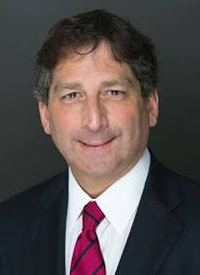Press Release
Article
University of Texas System Regents Announce Plans to Build UT Medical Center On Site of Erwin Center
Author(s):
The nation’s top-ranked UT MD Anderson Cancer Center and flagship UT Austin to build new hospitals as part of project.
Kevin P. Eltife

The University of Texas System Board of Regents Chairman Kevin P. Eltife announced plans to launch a monumental healthcare initiative to accelerate and expand UT Austin’s burgeoning medical district into a world-class academic medical center for education, research and patient care. The University of Texas at Austin Medical Center will start with two new hospital towers -- The University of Texas MD Anderson Cancer Center and a UT Austin hospital. MD Anderson, the nation’s #1 cancer hospital, will expand its Houston footprint to Austin by building and operating a new, comprehensive cancer center, while UT Austin will build and operate its new specialty hospital.
“The establishment of the University of Texas at Austin Medical Center, with UT MD Anderson Cancer Center adjacent to a new University hospital and access to all of UT Austin’s education and research assets, will undoubtedly result in transformative cancer care, provide students at the flagship campus with unmatched experiences, and benefit patients throughout the state and nation for all time,” said Eltife.
Eltife noted that the total investment for these cornerstone projects of the new medical center is still in the discussion by the regents and is estimated at $2.5 billion. Once approved, the hospitals will be built on the current site of UT Austin’s Erwin Center. The former Longhorns basketball arena will be demolished by fall 2024, and it is anticipated that groundbreaking for the hospitals should begin in 2026.
The new UT MD Anderson hospital in Austin will be fully staffed by MD Anderson physicians, making it easier for patients in Central Texas to access the world’s leading multidisciplinary, subspecialty-focused cancer care. UT Austin’s new university hospital will be constructed adjacent to the MD Anderson site. UT Austin and UT MD Anderson already share strong collaborative relationships that include breakthrough research in cancer detection, diagnosis, and treatment. That partnership will be able to grow significantly in the new medical center, using the strengths of both institutions, including the Dell Medical School, to provide a higher level of interaction and space for them to conduct research, educate medical students and treat patients shoulder to shoulder in Austin. UT Austin and UT MD Anderson collectively conducted $1.8 billion in research last year.
Governor Greg Abbott, who joined Eltife in making the announcement, along with UT System Chancellor James B. Milliken, UT Austin President Jay Hartzell, UT MD Anderson President Peter Pisters and UT Austin Dell Medical School Dean Claudia F. Lucchinetti, said the new medical center will be one of the most important initiatives ever undertaken by a university system to serve the people of Texas.
“The State of Texas has been on a mission to use higher education to expand access to healthcare, and today marks a giant step towards achieving our goals,” said Governor Abbott. “UT MD Anderson Cancer Center is ranked No. 1 for cancer care in America, with people across the world traveling to Houston to access care. But rather than having Texans travel to MD Anderson in Houston, we will now bring the world’s best treatment to them. Families across Central Texas who are affected by cancer every year can now stay close to home for that care. The key to building sustainable communities is a healthcare infrastructure that can meet the needs of a booming population. UT Austin and MD Anderson will help us meet those needs. The Texas of tomorrow will be shaped by what UT Austin and MD Anderson are building here today."
“The plans announced today by the Board of Regents will support an extraordinary expansion of the UT System’s education, health care, and research missions to serve Texas,” added Milliken. “As one of the nation’s largest comprehensive university systems, the UT System has fostered numerous collaborative opportunities across our institutions, and this latest one will include a relationship between UT Austin and UT MD Anderson that is an extraordinary demonstration of how this kind of synergy can positively and dramatically impact the lives of Texans.”









